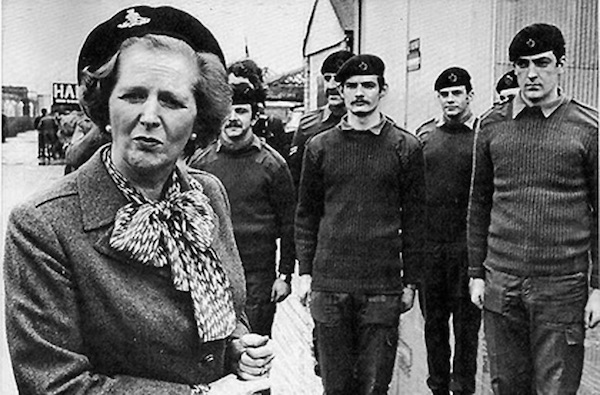
British soldiers of the Ulster Defence Regiment tried to intimidate a 26-County army checkpoint in County Donegal following unionist protests against the 1985 Anglo-Irish Agreement.
Previously confidential state files reveal that the British Ambassador in Dublin, Alan Goodison, reported a complaint by the 26 County Department of Foreign Affairs about an incident at Kilclean, County Donegal, on the Tyrone border.
On November 29 1985 eight UDR men, dropped by helicopter, pointed their guns towards the checkpoint and shouted “in unison and in a non-jocular tone” the words “never, never, never”.
A British official said the UDR patrol claimed that no provocative behaviour had taken place, but admitted that was probably not true.
“Given the nature of their task and in the real risk of terrorist attack, it is not surprising that their weapons were pointed in the direction of the Republic...Indeed, it is mischievous to suggest that such action is unreasonable or unwarranted.”
The image and activities of the infamous UDR were a difficult issue for British officials in the run-up to and after the Anglo-Irish Agreement. However, state papers show that concerns over organised collusion rarely featured, and the sectarian element was played down.
In one memo, one British official, John McConnell, said the UDR’s image in the nationalist community was not improving, but noted the British Direct Ruler at the time, Tom King, believed it was “not large scale”.
However another official, PWJ Buxton, admitted that “the bulk of its members were strongly anti-nationalist, some of them ex-B Specials”, referring to the murderous Protestant police force which was disbanded in 1970.
Buxton admitted that “the UDR has become a symbol of sectarian division”. He wrote: “The regiment is mistrusted, even hated, in much of the Catholic community and by many Catholic politicians. Their attitude has been confirmed in the past year by the charging of several members with murder; in the case of two men from 2 UDR in Armagh, allegedly committed while on duty”.
The Dublin government rarely raised the sectarian nature of the UDR and RUC in contacts with British officials, papers show, despite being warned about the issue.
In a private conversation with the Irish ambassador Noel Dorr in 1986, Justice Weir, then a Queen’s Counsel barrister, reportedly said the Ulster Defence Regiment (UDR) existed only to keep its members away from more violence than they would get up to on their own.
In a document marked “Secret”, Mr Dorr wrote to the Taoiseach’s office in Dublin that he met Mr Weir at a British Irish Association gathering at Oxford University in January that year.
“Weir was absolutely scathing in his judgment of the UDR (some of whom he has defended in specific cases) and highly critical of the RUC,” he wrote.
“He said the UDR was ‘unreformable’. He saw it as the direct successor of the old B-Specials and thought that the only reason for its existence was to keep its members out of worse mischief which they would get up to individually.”
![[Irish Republican News]](https://republican-news.org/graphics/title_gifs/rn.gif)
![[Irish Republican News]](https://republican-news.org/graphics/title_gifs/harp.gif)

